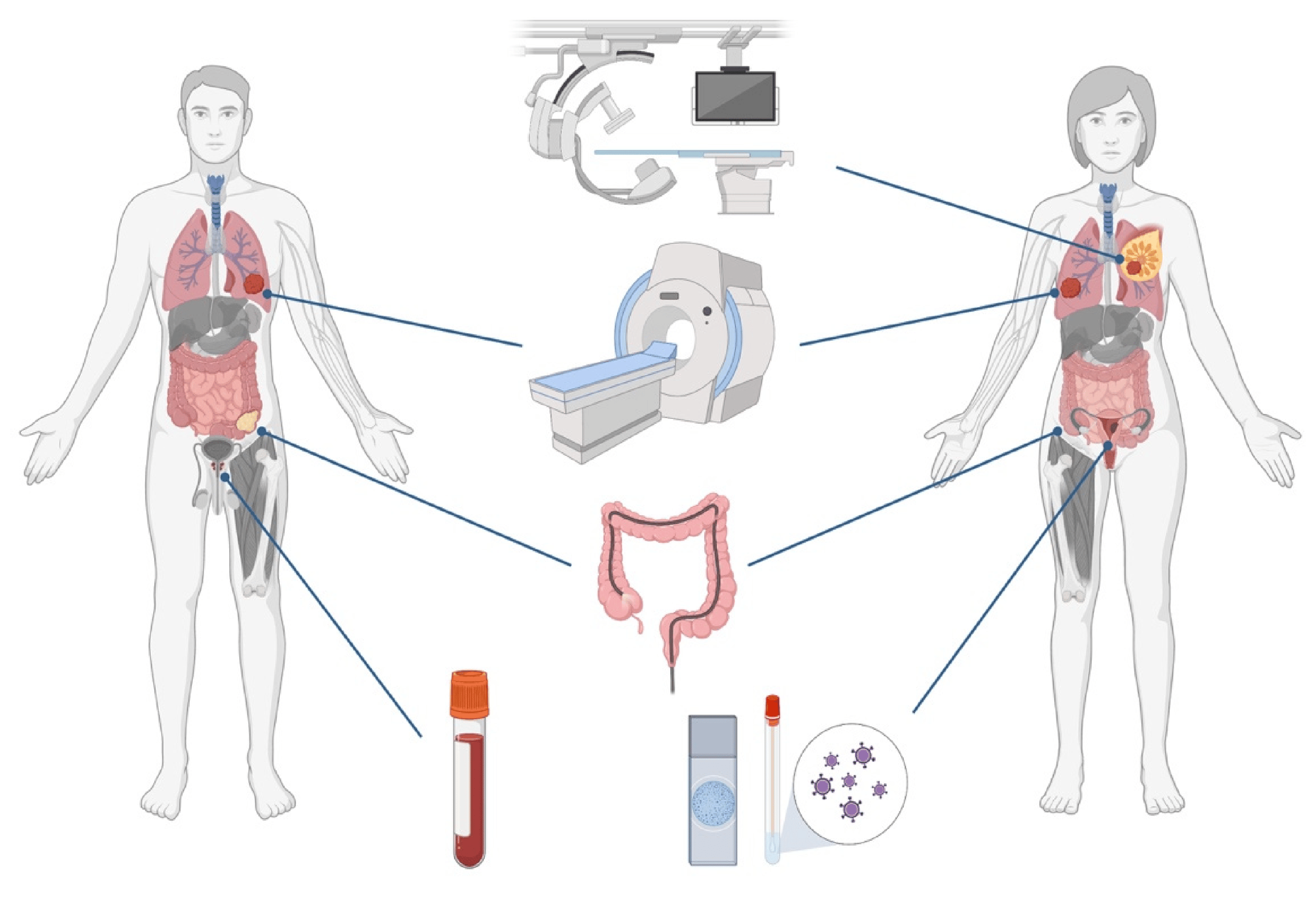POTENTIAL OF BLOOD-BASED TESTS FOR CANCER SCREENING
Why in the News?
Blood-based cancer screening tests, known as multi-cancer early detection (MCED) tests, offer significant promise for improving early cancer detection and survival rates , where cancer is the second leading cause of mortality.
Source : mdpi
What is the scenario of Cancer in India?
- Cancer is responsible for 18% of deaths from non-communicable diseases in India, making it the second leading cause of mortality.
- In 2022, India recorded around 14 lakh new cancer cases, expected to rise by 12% by 2025.
- Common cancers in India include breast, cervical, ovarian, colorectal, lung, esophageal, and stomach cancers.
Let’s see the importance of Early Detection:
- Early detection through cancer screening significantly improves survival rates.
- The UK has a cancer survival rate of 60% within 10 years, attributed to organized cancer screening programs.
- In India, screening is limited and focuses on cervical, breast, and oral cancers, with only 0.22% of people having been screened.
Blood-Based Tests potential:
- These tests are designed to detect cancer at early stages by identifying circulating tumor DNA or cells in the blood.
- Although some MCED tests have received “Breakthrough Device Designation” from the FDA the U.S. Food and Drug Administration, they have not yet undergone the FDA’s rigorous review process.
- In India, MCED tests are still in the research phase and are not yet approved by the Central Drugs Standard Control Organization.
Now what are the Challenges and Limitations?
- Barriers to cancer screening include anxiety, fear of test results, embarrassment, and lack of infrastructure.
- Current screening programs are primarily for single-cancer detection, but MCED tests offer the potential for detecting multiple cancers, including difficult-to-diagnose types like pancreatic and esophageal cancers.
Future Prospects:
- There is ongoing research to improve the accuracy and reliability of MCED tests, which could eventually lead to widespread adoption and approval.
- Experts believe that with advancements in these tests, they could play a crucial role in reducing cancer mortality by enabling earlier diagnosis and treatment.
- Thus, blood-based tests for cancer screening hold significant promise, particularly in a country like India, where early detection can make a profound difference.
- However, challenges remain in terms of regulatory approval, infrastructure, and public awareness.




